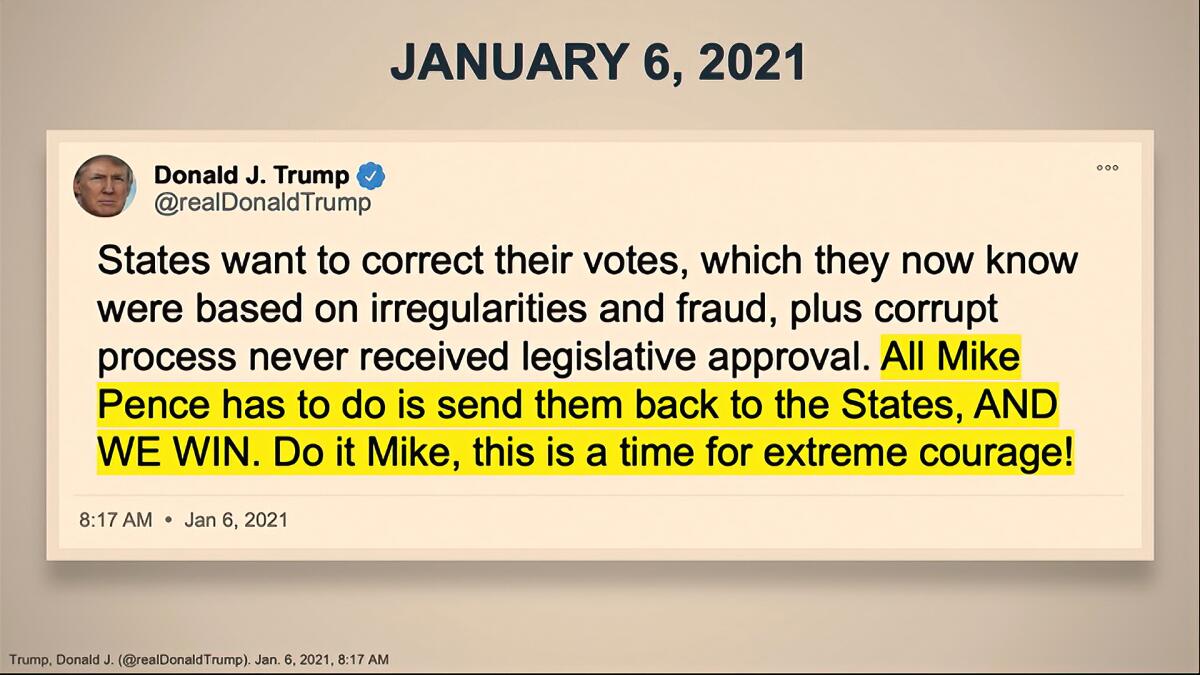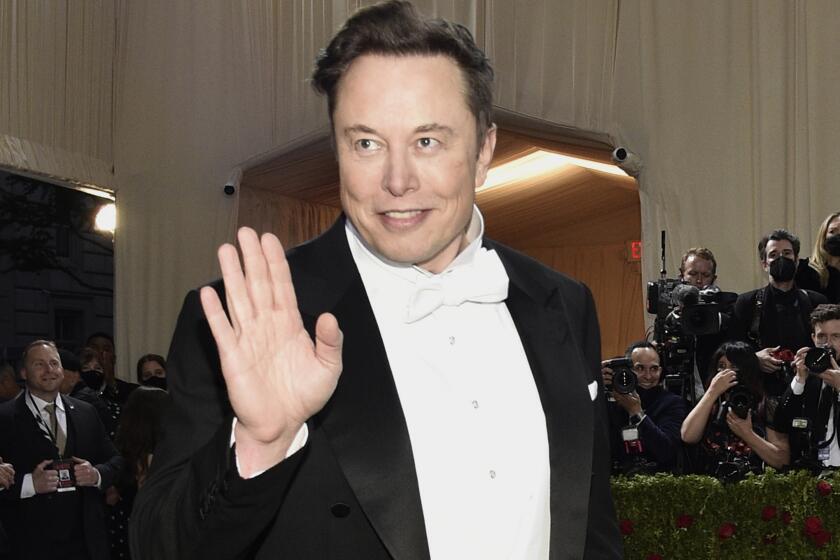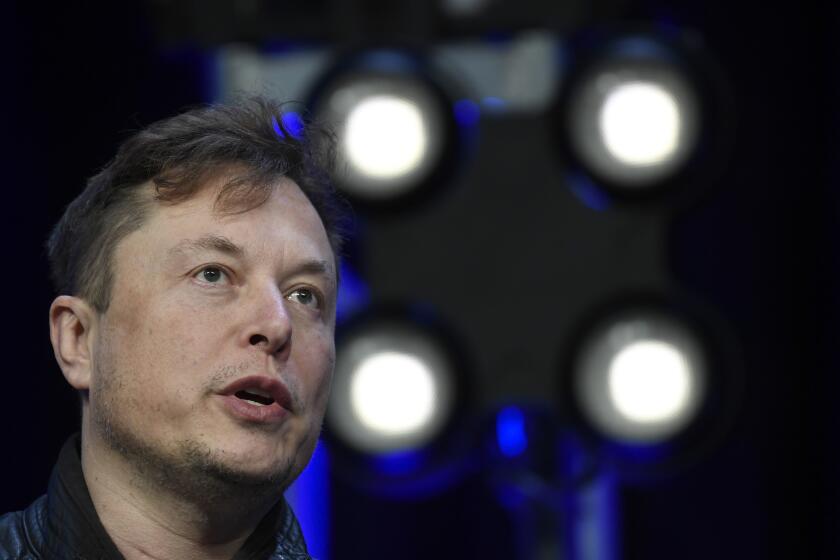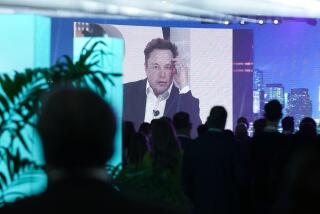Column: Musk is the one who’s ‘flat-out stupid’ about Trump on Twitter

Twitter is a private platform, with broad free speech rights. Under the 1st Amendment, it can choose, if it wishes, to be a home for bigots, liars, demagogues and supporters of violence, allowing them to spread their dangerous messages to the company’s hundreds of millions of users.
If he succeeds in becoming Twitter’s new owner, Elon Musk can opt to stop policing content on his awesomely powerful new platform. He can populate Twitter with QAnoners and antisemites and shady Russian apologists and liars of all stripes, allowing them to spread disinformation and adding to political polarization and division.
And he can justify it in the name of unfettered freedom of expression.
Opinion Columnist
Nicholas Goldberg
Nicholas Goldberg served 11 years as editor of the editorial page and is a former editor of the Op-Ed page and Sunday Opinion section.
That’s exactly the direction Musk — the world’s richest man, who is in the final stages of buying Twitter for $44 billion — seems to be headed. On Tuesday, he said that the company’s decision to ban Donald Trump in wake of the Jan. 6 U.S. Capitol riots had been “morally wrong” and “flat-out stupid.” He said that if his Twitter deal goes through, he would reverse the permanent ban.
It was in line with what Musk has said in the past. He’s spoken out repeatedly on how important it is to have an open forum on Twitter with few restrictions and limited moderation. He’s called Twitter a “de facto town square.”
In fact, though, it is Musk’s position that is morally wrong. And just because he can do it doesn’t mean he should.
During a virtual appearance at the Financial Times Future of the Car conference on Tuesday, Musk said “a temporary suspension is appropriate, but not a permanent ban.”
Trump is a liar. Untruths, threats, fear-mongering and bullying are his weapons of choice; his enemies are mocked and belittled. The Washington Post counted 30,573 false or misleading claims during his four years in office, beginning with his misstatements about the size of his inauguration crowd.
Not all Trump’s lies are necessarily dangerous. But many are. And perhaps none was more so than his final lie in office — his insistence that the 2020 election (which by all reputable accounts was unequivocally won by Joe Biden) was in fact rigged, mismanaged and stolen. That lie continues to pose an extraordinary threat to American democracy.
Does that mean Trump ought to have no speech rights? No, of course not. He can speak and write as much as he wants, protected by the Constitution.
But Twitter doesn’t owe him a megaphone.
Musk is not a benevolent actor, but he probably can’t wreck Twitter without wrecking what he really cares about: $TWTR.
I don’t mean to suggest that this is an easy, open-and-shut issue. Anyone who believes in and cares about free speech and wants to see robust debate — even uncomfortable debate — about important issues has to think long and hard before coming out in favor of closing down opportunities for people to spread their messages.
But I’m sorry. No private platform has an obligation to host Trump or others of his ilk.
Musk was being disingenuous Tuesday when he said that the decision to kick Trump off Twitter was wrong because it “alienated a large part of the country.” That made it sound like dumping Trump was a political move, orchestrated by the president’s opponents, to weaken the power of someone whose policies they didn’t like.
But that is not what happened. Trump wasn’t banned because he opposes abortion or wants to build a wall along the Mexican border or because he calls Sen. Elizabeth Warren “Pocahontas.”
He was banned because he was found to be in violation of the company’s rules and standards in communicating with his 88 million followers.
The final break between Twitter and Trump were the tweets the president posted just before and after the Jan. 6, 2021, storming of the U.S. Capitol. Twitter executives concluded that his words posed a “risk of further incitement to violence,” and, on Jan. 8, permanently banned his account in what amounted to an extraordinary reprimand to a politician who had used Twitter so ably in his rise to power.
Twitter said his tweets violated the company’s “glorification of violence” policy.
Musk says this kind of thing would better be handled by deleting or hiding troubling tweets and occasionally by temporarily suspending people who violate the rules. But would it? I seriously doubt Trump would be chastened by a week or two off the platform. A slap on the wrist is not enough disincentive for a serial prevaricator and stubborn, irresponsible demagogue.
And here’s a key question. Once you allow Trump back on, who won’t be allowed on? Expect to see more from Alex Jones, who was banned in 2018 for “abusive behavior,” and Roger Stone, who was removed in 2017. In Musk’s Twitter, will anyone police dangerous hate speech? Stop abusive behavior? Combat election interference? Who will monitor threats?
The social media company approved the billionaire and avid Twitter user’s $44-billion bid after 11 days of back and forth
Twitter has grown so big and so powerful that the very least it can do is to behave with a measure of maturity and responsibility. It influences elections. It moves markets. Now, it will most likely be owned by the richest man in the world.
In recent years, Twitter has spent a fortune and hired an army to enforce its rules.
It didn’t ban Trump for years despite calls to do so, arguing that as president of the United States he had a right to communicate with Americans without being policed by a bunch of Silicon Valley executives. True enough. But ultimately Twitter concluded that his comments on the Capitol insurrection constituted incitement and that Trump had to be held accountable.
It was a tough decision but the right one.
By all means, Twitter should be a haven for freewheeling, challenging, open debate. It can be a de facto town square.
But the company has a right and a responsibility to exercise some control over the most irresponsible tweeters.
More to Read
A cure for the common opinion
Get thought-provoking perspectives with our weekly newsletter.
You may occasionally receive promotional content from the Los Angeles Times.















